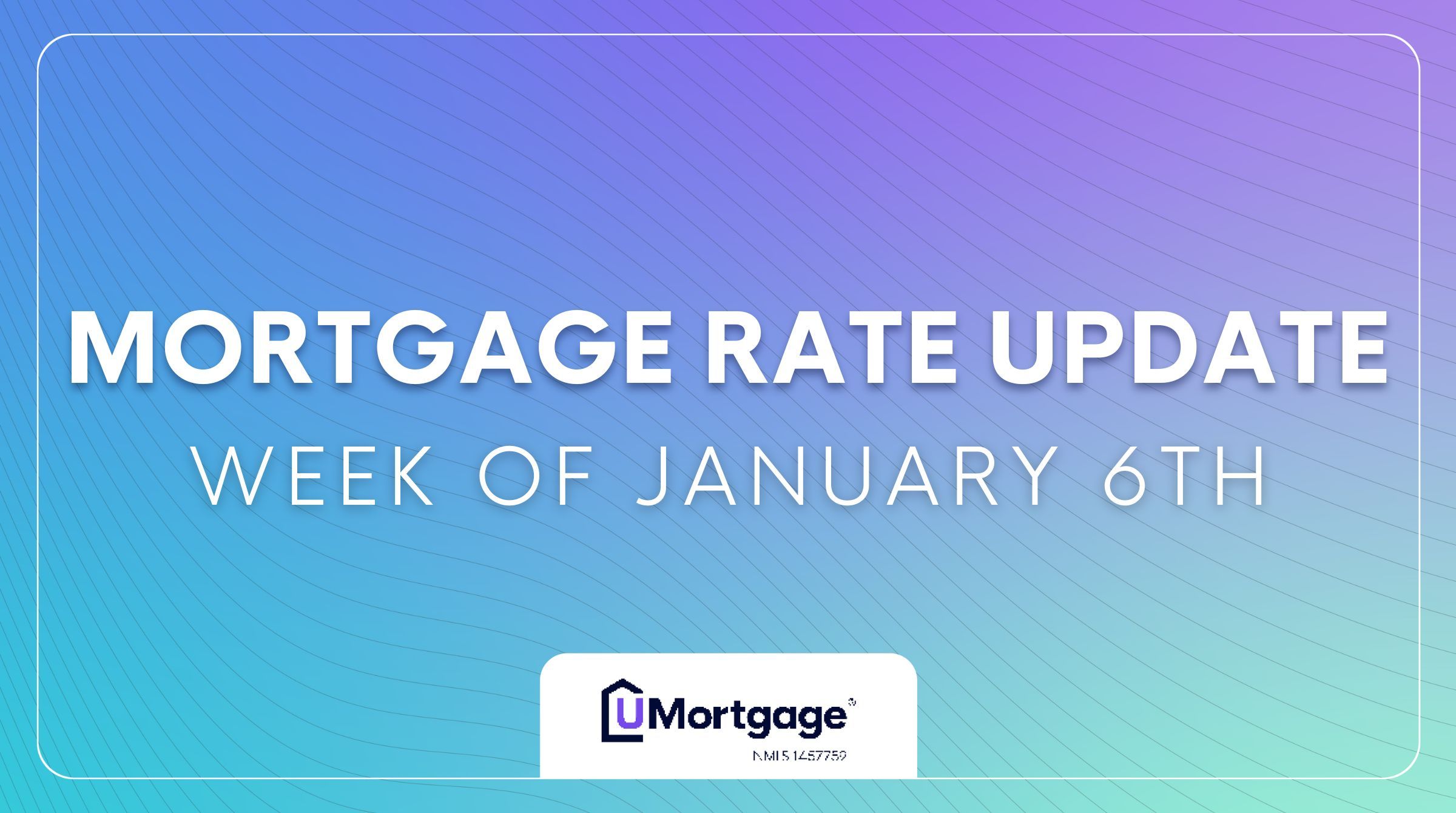

Morgan Fleet
Meet Morgan!
As your trusted UMortgage Loan Originator, my goal is to simplify the mortgage process to make your home loan experience easy to navigate! Please reach out so I can help start your home financing journey.
Serving Homebuyers In:
- Mississippi
- Tennessee
Mortgage Calculators
Monthly Payment
Find your monthly payment
What does a monthly mortgage payment look like for you? Get an estimate with some basic information.
Estimated Monthly Payment
The UMortgage mortgage calculators are for estimation purposes only. This is not a commitment to lend. For an exact quote based on your individual financial circumstances, please contact me.
Affordability
What is your budget?
Curious about how much you can afford to spend on a home? Use our calculator to get an estimate on your maximum budget.
Maximum Home Price
Maximum Monthly Payment
The UMortgage mortgage calculators are for estimation purposes only. This is not a commitment to lend. For an exact quote based on your individual financial circumstances, please contact me.
Refinance
Should you Refinance?
Refinancing might save money on your monthly mortgage payments, putting cash in your pocket. With some basic information from you, we can help decide if this is a good path for you.
Monthly Savings
Total Savings
The UMortgage mortgage calculators are for estimation purposes only. This is not a commitment to lend. For an exact quote based on your individual financial circumstances, please contact me.
VA Entitlement & Payments
Discover Your Buying Power With Our VA Home Loan Calculator!
If you are a veteran, an active-duty member of the military, or the spouse of a current or former military member, you are eligible to purchase a home with your VA home loan benefit! By using the calculator below, you can get a glimpse into your buying power and the estimated monthly payment of your VA loan as you start planning your homebuying journey.
Estimated Monthly Payment
Required Down Payment
Limit
$0
Entitlement Used
$0
Available Entitlement
$0
No Limit
How is my monthly payment calculated?
The UMortgage mortgage calculators are for estimation purposes only. This is not a commitment to lend. For an exact quote based on your individual financial circumstances, please contact me.
Your Mortgage Questions, Answered!

Housing Market Update | Week of January 6th
The first full week of 2025 is a busy one for the housing market. It’s jobs week, which means we will get a different piece of labor data starting with the Job Openings and Labor Turnover Survey (JOLTS) tomorrow and rounding out the week with the pivotal Bureau of Labor Statistics (BLS) report. As always, if the estimated figures come in below expectations, we could see positive news for mortgage rates. Last Week's Mortgage Rate Recap Rates Were Steady It was a relatively quiet week last week as the markets closed early on New Year’s Eve and remained closed on New Year’s Day. When they reopened on Thursday, bonds began to inch slightly higher after lower-than-expected weekly jobless claims data showed that the labor market has remained resilient. Overall, rates remained in a similar range as the markets await this week’s labor reports. This Week's Mortgage Rate Forecast Rates Could Be Volatile We’re in for a busy week full of pivotal housing market data this week. The Fed has maintained that the labor market must break for it to ramp up cuts to the Fed funds rate, and the 4 major labor reports released daily between Tuesday and Friday will set the tone for the early part of the year. You can find more information about each report below: Tuesday - Job Openings and Labor Turnover Survey (JOLTS): This report shares monthly and annual estimates of job openings, hires, and separations for the nation. The markets expect this figure to remain unchanged at 7.7 million. Wednesday - ADP Employment Report: This report provides an independent view of the private-sector labor market based on the aggregated and anonymized payroll. The primary figure outlines job creation which is estimated at 130 million this month. Thursday - Initial Jobless Claims: A weekly report outlining the number of individuals who have filed for unemployment for the first time. Last week's report showed 211,000 initial claims filed—a significant drop from the forecast of 225,000. Friday - Bureau of Labor Statistics Jobs Report: This report outlines job creation, unemployment rate, and hourly wages throughout the country. The job creation forecast expects 155,000 jobs created and December's unemployment rate came in at 4.2%. As always, the reported figures in each report will need to come in lower than expectations for rates to drop. Feel free to reach out to me throughout the week for updates as these reports roll in! Finally, we have our annual Fed rotation with four new Fed presidents taking over voting responsibilities. One of the four rotating in—Chicago Fed President, Austan Goolsbee—is notoriously in favor of several rate cuts. We will hear from a few Fed presidents throughout the week; the labor data this week will be a primary focus in those speeches. Reach out to a UMortgage Loan Originator to help answer any housing-related questions you may have!

How to Read Your Loan Estimate
Getting your loan estimate is an essential step in the homebuying or refinancing process. What’s even more essential, though, is knowing how to read your loan estimate. We’ve seen plenty of clients work with other lenders and get hit with extra fees that were hidden in plain sight on their loan estimates. Reading your loan estimate doesn’t have to feel overwhelming. This guide will break it down step-by-step so you can understand every detail and feel confident about your mortgage. What is a Loan Estimate? A loan estimate is a detailed document provided by your mortgage lender that outlines all the different details and fees that will go into your mortgage once approved. It details things like your rate, the type of loan you have, what your monthly payment will be, an estimate of your closing costs, and much more. Remember, these figures are estimates. They can change if your mortgage rate, home price, or down payment changes. It’s important to work alongside your loan originator to understand all of the costs that go into your mortgage to make sure you know what you’re paying for and get the best deal possible. The Different Sections of Your Loan Estimate When you receive your loan estimate, you’ll notice that it’s broken down into a few different sections. It’s important to know what these sections cover and what they mean to avoid hidden fees and make sure your mortgage is structured the way you want it to be structured.Below are some of the sections you should review in detail and the different sections you’ll see on each page. Page 1 - Loan Terms Page 1 of your loan estimate summarizes the basic details of your loan. This includes your loan amount, interest rate, monthly principal & interest, prepayment penalty, and balloon payment. At the very top of the page, you can see whether you locked your rate, the length of your loan, and the type of your loan. As you review this section, keep in mind the things you agreed upon with your loan originator. Things like whether you locked your rate, what type of mortgage you got, and whether or not your rate can or cannot increase after closing. Page 2 - Closing Costs Page 2 of your loan estimate will cover all of the fees that make up your closing costs. The only thing on this page that’s controlled by your loan originator is section A: origination charges. This section includes charges like application fees, underwriting fees, or points to ‘buy down’ your rate. These are the only fees your loan originator controls, so review them carefully to ensure they align with what you discussed. The other sections are the services that you can and cannot shop for, taxes and government fees, prepaid interest, taxes, and insurance, initial escrow payment due at closing, and other costs. At the bottom of this page, you can see your estimated cash to close. This is the amount of money you’ll need to pay to close your loan and get the keys to your new home. It combines the fees outlined on that page with your down payment and accounts for paid fees like a deposit, seller credits, lender credits, and other things that help lower your total closing costs. Page 3 – Additional Information Finally, on page 3, you can see a few pieces of information specific to your loan. At the top of your page, you can find information about your lender and loan originator. Beneath that are figures that you can use to compare this loan estimate with any others you receive. Finally, at the bottom of the page are details about your appraisal, loan assumption if you sell or transfer the property to someone else, late payment details, refinance qualification, and servicing. Servicing lets you know whether your lender will transfer servicing of your loan to someone else. This is important to know—if your lender intends to service the loan, you will pay that lender each month. If they plan to transfer service, you will need to pay a different lender. You can confirm all of those payment details with the lender at the time of your closing. How to Use Your Loan Estimate to Your Advantage Understanding every section of your loan estimate will help empower you to shop around for the most affordable mortgage available with terms that fit your short- and long-term financial goals. It will also protect you from different hidden fees that some lenders utilize to make a loan look more affordable than it actually is. The most common is discount points that allow a lender to give you a lower mortgage rate than the market allows. If you think your quoted rate is too good to be true, make sure to check section A on page 2. Discount points aren’t always bad, but it’s important to know whether you’re paying them and if it makes sense to pay discount points before you sign the dotted line. When you work with a UMortgage Loan Originator, you’ll unlock expert guidance to walk you through the entire mortgage process, including your initial loan estimate and your more detailed closing disclosure. You can also trust that you won’t get hit with any deceptive fees—just a mortgage that allows you to unlock the life-changing benefits of homeownership. Want to get started? Follow this link and fill out the form to get connected with a Loan Originator in your area today!

2025 Homebuying Made Easy: Market Trends and Preparation Strategies
If you're planning to buy a home in 2025, there are several important factors to consider and steps to take that will help ensure your success. Various trends will influence home affordability and your ability to purchase the home you want without stretching your budget. So, what can we expect regarding mortgage rates? Will there be an increase in available homes on the market next year? Additionally, there are specific actions every homebuyer should start taking now to prepare for 2025. Let’s break it down to help you navigate this market with confidence. Will Mortgage Rates Drop in 2025? The questions asked by homebuyer and real estate agent is where mortgage rates are heading in 2025. Although nobody has a crystal ball, many reliable experts predict them to drop over the course of the year. If you're planning to buy a home in 2025, there are several important factors to consider and steps to take that will help ensure your success. Various trends will influence home affordability and your ability to purchase the home you desire without stretching your budget. How much mortgage rates drop will depend on ever-shifting market factors such as inflation, unemployment, wage growth, economic growth, and the possibility of a recession. Sourcing data from reputable sources such as Fannie Mae, the Mortgage Bankers Association (MBA), HousingWire, and MBS Highway, it’s expected that rates will drop slightly next year but remain in a range between 5.75% and 7.25%. These figures are dependent on the economic factors previously mentioned, and it could take until the second half of the year to see rates in the low end of that range. Mortgage rates can directly impact your overall budget; check out this home affordability calculator to learn more. If you want to buy in 2025, it’s important to connect with a UMortgage Loan Originator as early as possible to take advantage when market opportunities arise. More Homes and More Buyers on the Market in 2025 Housing inventory, specifically a lack thereof, has been one of the main drivers of the housing market these last 3 years. Throughout the year, we’ve seen inventory numbers steadily rise to highs not seen since the summer of 2020. As of the end of November, we have 27% higher single-family housing inventory than this time last year. This rise is expected to continue to increase in 2025, and it’s partly due to the forecast that rates will drop slightly across the year. According to Mike Fratatoni, Chief Economist and SVP for Research and Business Development at the MBA, “mortgage rates at this level should support homebuyer demand and gradually reduce the lock-in effect, thereby increasing the inventory of existing homes and supporting higher purchase origination volume in 2025.” More sustainable inventory is great news for homebuyers. Not only does this mean more options to shop from, but it also gives more negotiation power for many homebuyers to get an asking price that works for their financial picture. How to Prepare to Buy a Home in 2025 Buying a home is a big commitment, but there are plenty of things you can start doing now to put yourself in the driver’s seat when it comes time to buy in 2025. Below are a few strategies that will help you be one of the strongest buyers on the market next year. Start Saving for a Down Payment: A higher down payment will help you secure the lowest possible mortgage rate and can significantly lower your monthly mortgage payment. It’s possible to buy with as little as 3% down for conventional loans (and 0% down for a VA loan), but a higher down payment will open up more possibilities. Build and Maintain a High Credit Score: Like with a higher down payment, a higher credit score will be key to getting you the lowest possible mortgage rate. Building credit is easier than you might think: make sure you pay all of your monthly debts on time and, if possible, keep balances as close to $0 as possible. Read this guide for more credit-building tips. Get a Mortgage Pre-Approval: Your golden ticket in the homebuying process is a mortgage pre-approval. This will give you an accurate estimate of your buying power and will show sellers and listing agents that you’re a serious buyer. Fill out this form to start your free pre-approval today! The Importance of Working With a Local Expert It’s looking like the 2025 housing market will bring some balance that should make affordable homeownership more accessible. However, the best way to ensure a sensible home purchase in 2025 is to work with local mortgage and real estate experts who can help you navigate the ebbs and flows of the market. A knowledgeable real estate agent in your area will understand home prices by neighborhood and the areas where home prices appreciate the most. This expert guidance will help you spot deals, avoid overpaying for a property, and ensure that your home is an investment that grows your financial power over time. When you work with a UMortgage Loan Originator, you’ll gain a partner who will help you maximize the wealth-building benefits of homeownership. Throughout your homebuying process, your LO will learn more about you to make sure your mortgage matches your short- and long-term financial goals. Even after you’ve closed your loan, your LO will stay in touch to share refinance opportunities that will ensure you have the lowest possible mortgage payment and can use the equity you’ve earned to grow your financial portfolio. If you’re ready to start preparing to buy a home and unlock financial freedom through homeownership, follow this link to get connected with a UMortgage LO today!
Serving Homebuyers In:
- Mississippi
- Tennessee
